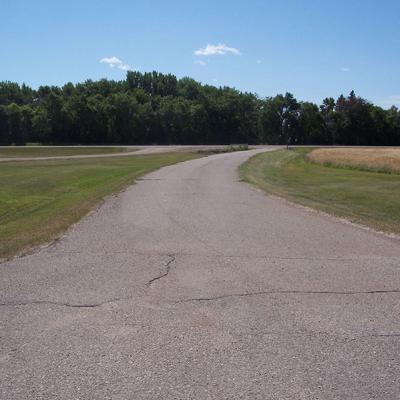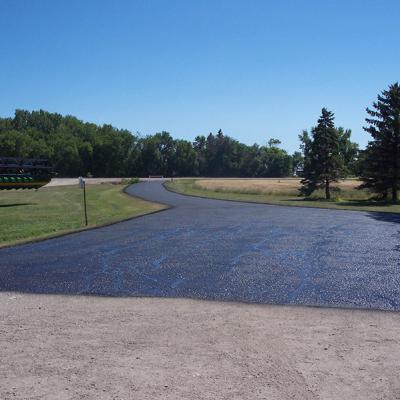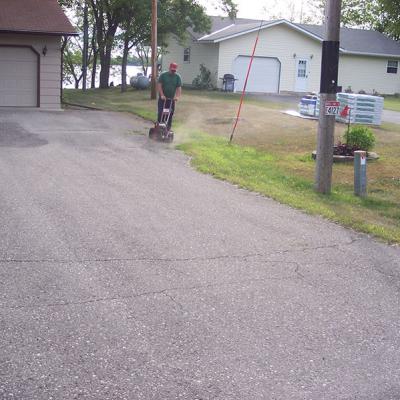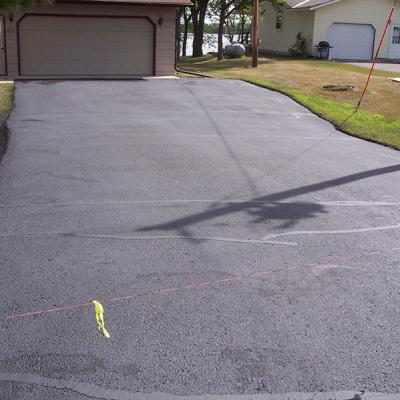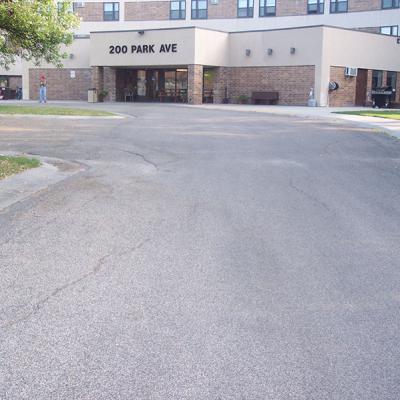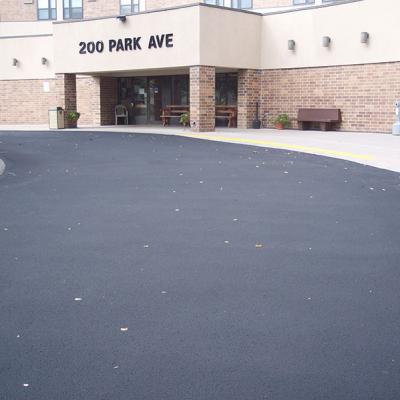What is Sealcoating?
With time your asphalt will change in color and texture. Many factors including weather, sunlight, and traffic slowly alter the appearance and make asphalt more brittle. Sealcoating will extend the life of your asphalt, resist gas and oil spills, slow down oxidation and weathering, as well as improve the appearance of the asphalt, and provide slip resistance.
Asphalt should be sealed 1 year after being put in and then every 2 to 3 years after depending on traffic and weather. This will double or even triple the life of your asphalt. Most wait too long to start a maintenance plan on their asphalt resulting in a lot of the damage already being done. Yes, we can do something for it, but the initial damage has been done.
Asphalt should be sealed 1 year after being put in and then every 2 to 3 years after depending on traffic and weather. This will double or even triple the life of your asphalt. Most wait too long to start a maintenance plan on their asphalt resulting in a lot of the damage already being done. Yes, we can do something for it, but the initial damage has been done.
Reasons to Sealcoat
- Provide protection from the elements that take the life out of your black top, such as sun, rain, snow, oil, gases and other products not favorable to asphalt.
- Well maintained parking lots increase the value of your property and are more pleasing to your patrons. The first impression of a prospective customer is the parking lot.
- General maintenance means less cracking and less pot holes. In turn, this costs you less.
- No sealer = 10 to 15 years of life. With sealer = double or triple life.
Process
- Blocking: Block off asphalt parking lot or driveway.
- Cleaning of Asphalt: This process consists of edging around the outside of the asphalt to remove over grown grass; running a wire wheel through cracks to clean grass, weeds, and dirt out of the cracks; brooming the asphalt; and blowing off all excess dirt leaving a crisp, clean parking lot.
- Crack Filling: We fill all major cracks using a hot rubber that is flexible enough to expand and retract for changes in the weather.
- Applying Sealcoat: We broom around all concrete, flower beds, rock gardens, etc. Then we spray on the sealcoat giving a much more consistent coverage.
Sealcoating Products
We invest in the highest quality products to provide our customers with the best. The company we purchase products from does continuous lab research to ensure the highest quality product on the market.
THINGS THAT MAY AFFECT THE RESULTS OF YOUR SEALER
THINGS THAT MAY AFFECT THE RESULTS OF YOUR SEALER
- Water: Any area that holds water, sealer may not bond well. Example - low spots in your asphalt or around flower beds.
- Excess watering from sprinkler systems.
- Trees: Trees may affect your sealer in two ways. One is because of the shade they provide may not allow enough sun in to allow good bonding of sealer. Two, if your trees shed sap then the sealer is sticking to sap instead of asphalt and when sap lets go so does sealer.
- Excess Salting and certain kinds of salt can affect sealer.
- Snow Plows: Snow plowing should always be done with skid shoes and a 1/16 to 1/8 of an inch of snow should be left on black top to melt off. If the snow plow uses to much force it will scrap off sealer and also pull out crack filler. Snow plows also should never use chains.
- The kind of sealer used on your blacktop prior, if it is cracking and pealing up in areas when you put new sealer over it as the old continues to let loose it will take the new sealer with it.
- Oil spots and grease.
- Of course, quality and condition and age of asphalt before sealing, example if you have a rough surface with rock sticking up you will get a polish rock look.
- It is normal to see wear in drive lanes if you have a lot of traffic your asphalt is still protected if you look close.
- Primer can help some of these situations but it’s an additional cost and still don’t always work 100%


